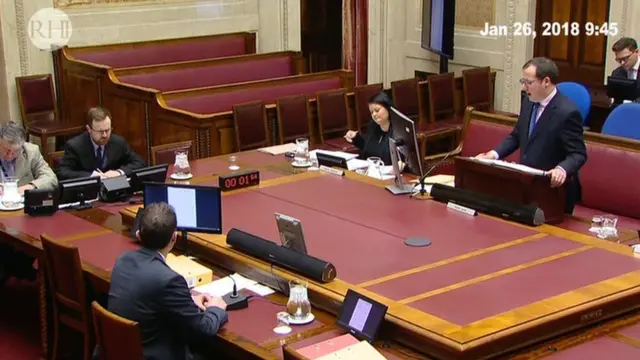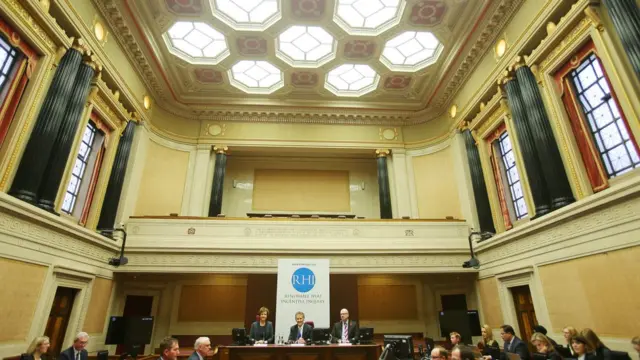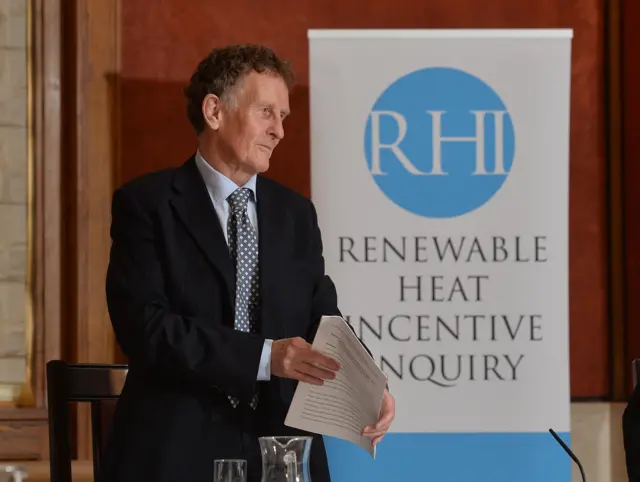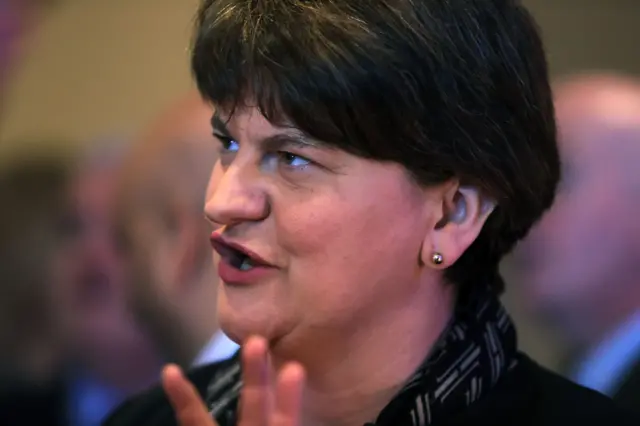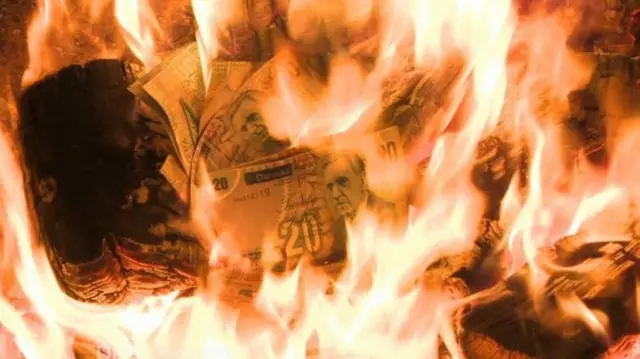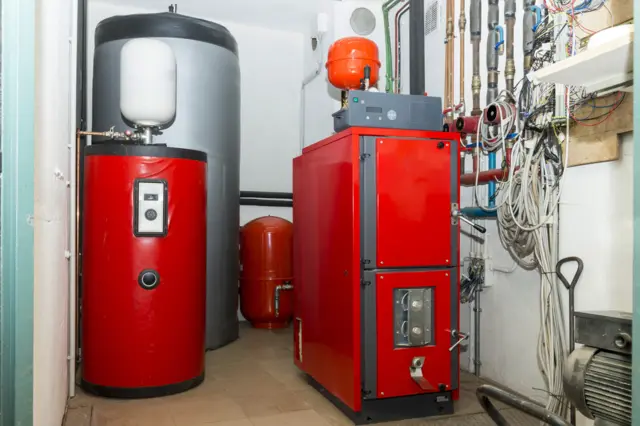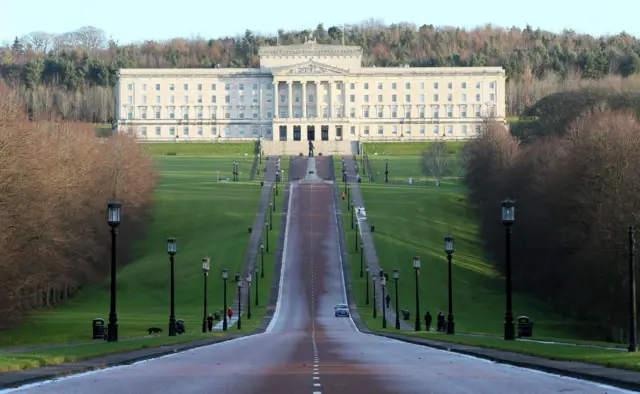'RHI costs didn't seem out of the ordinary'published at 10:14 GMT 26 January 2018
In August 2011, Mr Connolly was asked to assess a DETI business case for a body called Ofgem to carry out a feasibility study over whether it could administer the RHI scheme.
The economist made a number of points, including one in which he queries the cost of the study, saying: "£100,000 seems very expensive - what is the rationale for these costs?"
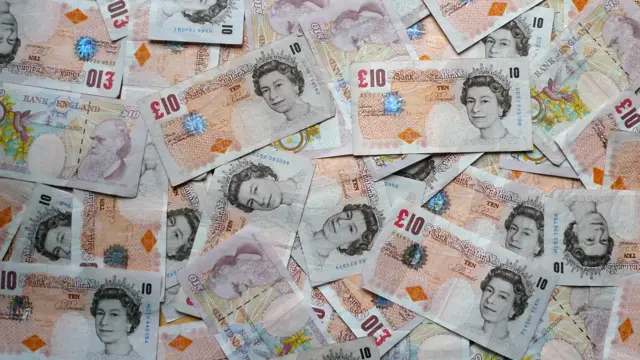
Mr Lunny describes the points raised as "value-for-money concerns".
He asks why he raised those concerns but didn't do the same about cost issues about the RHI scheme itself a month earlier, which Mr Connolly accepted in his evidence yesterday.
The witness says he believed there had been a rationale for the fact that the scheme "was going to cost a lot of money" and it "didn't seem anything out of the ordinary".
